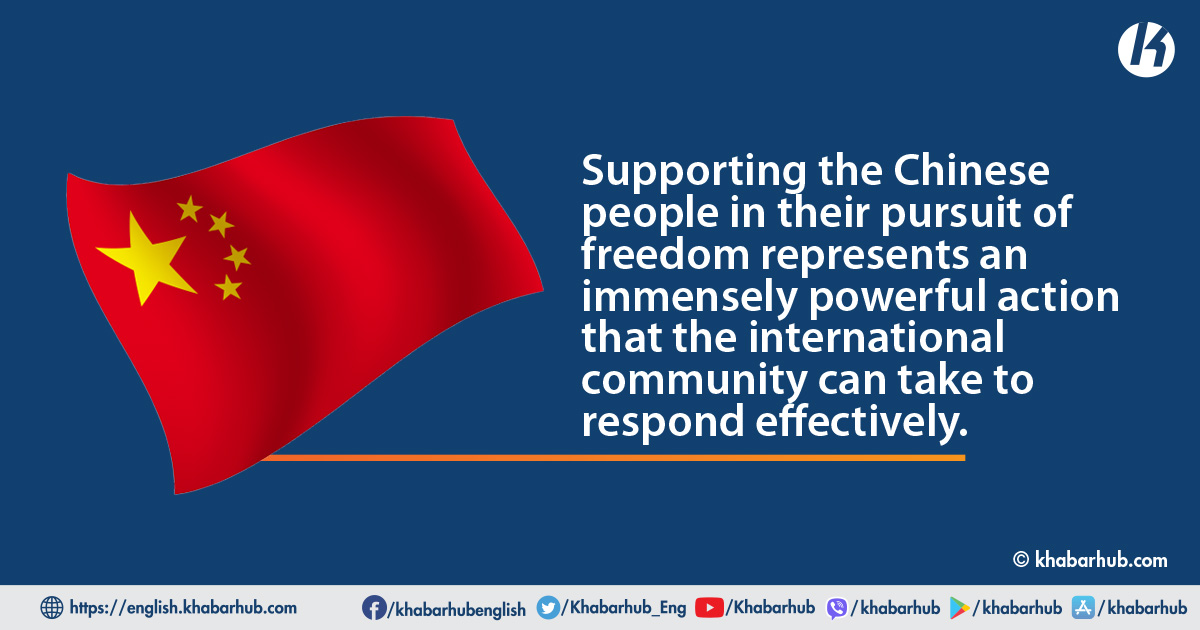The Chinese Communist Party (CCP) stands out as a prominent global violator of human rights, engaging in various egregious acts.
Recent years have witnessed the CCP’s perpetration of an ongoing genocide against the Muslim Uyghur population in Xinjiang, the erosion of freedom in Hong Kong, and the expansion of its transnational repressive tactics.
These worrisome trends, coupled with the security and economic threats posed by the CCP, emphasize the urgent need for a robust international response to their violations of global norms.
Formulating effective policies to address human rights violations in China presents a distinctive challenge, primarily due to the CCP’s prioritization of these violations as a means to maintain its grip on power.
In their book “China’s Search for Security,” Andrew Nathan and Andrew Scobell highlight the CCP’s two core foreign policy objectives: ensuring internal stability and safeguarding sovereignty.
The Chinese government often justifies its human rights abuses by claiming to respond to perceived threats to these core objectives.
A comprehensive strategy to tackle China’s human rights violations should include accountability mechanisms such as targeted financial sanctions, visa bans, and broader measures to combat illegal activities, such as the Uyghur Forced Labor Prevention Act or measures to address money laundering and illicit finance.
For instance, the CCP falsely categorizes Uyghur Muslims, along with individuals of all faiths, as an extremist group that jeopardizes China’s stability and sovereignty.
In response, the CCP has employed surveillance technology as an authoritarian weapon, enabling rapid and mass control over the Uyghur population.
Currently, between one and three million Uyghurs are detained in political prison camps throughout Xinjiang, where they face forced indoctrination, torture, and even death.
Women are subjected to rape and various forms of sexual violence. The severity of the persecution led the United States government to recognize it as an ongoing genocide and crimes against humanity.
The Uyghur population is not the only group affected.
The CCP initially allowed Hong Kong a degree of autonomy until millions took to the streets in 2019 to defend their freedoms.
The subsequent crackdown and implementation of the National Security Law (NSL) in 2020 were justified by the CCP as a response to the perceived threat posed by the people of Hong Kong to China’s stability and sovereignty.
The NSL has severely curtailed civil and political liberties in the city-state, resulting in a significant erosion of the rule of law.
Beijing now exploits Hong Kong’s formerly robust legal system to target political prisoners, including prominent figures like Joshua Wong and Jimmy Lai.
Previously independent press organizations like Apple Daily and Stand News have been forcibly shut down, and the business environment in Hong Kong has been compromised by government-supported sanctions evasion, money laundering, and other illicit financial activities.
The plight of the Uyghurs and Hong Kongers exemplifies the CCP’s typical approach: identifying any threat to the Party’s rule, suppressing it at any human cost, and undermining rights and freedoms within China.
However, the CCP’s actions extend beyond China’s borders through transnational repression. A particularly pernicious example is the exportation of surveillance technology, accompanied by technical training provided to countries worldwide on the methods used to surveil the Chinese population.
Other instances of transnational repression include the forced repatriation of Uyghurs, the establishment of CCP-controlled overseas police stations, the influence exerted by Confucius Institutes in the US, Europe, and elsewhere, and the targeting of Chinese diaspora critical of the CCP.
The CCP engages in these activities because it perceives them to be advantageous and believes that failure to do so risks domestic destabilization.
Considering the CCP’s significant emphasis on human rights violations, it is disconcerting that global leaders allocate little attention to countering these abuses in their strategies to mitigate the threat posed by China, especially when many of these threats affect their own countries.
For instance, the Biden administration’s National Security Strategy prioritizes “outcompeting” China as a key foreign policy objective but pays inadequate attention to countering the CCP’s human rights violations.
Capitals across Europe and Asia demonstrate even less emphasis on addressing human rights concerns in China, with many only now awakening to the threat posed by the CCP.
Therefore, the challenge for policymakers lies in identifying the necessary means to address China’s security threat while simultaneously addressing human rights concerns.
The CCP views its own population as potential agents of destabilizing change capable of undermining the regime’s resilience and power.
In collaboration with allies and partners, the United States should utilize tools in its foreign policy arsenal to rebalance power dynamics within China, granting greater power to the Chinese people while diminishing the government’s authority.
A comprehensive strategy to tackle China’s human rights violations should include accountability mechanisms such as targeted financial sanctions, visa bans, and broader measures to combat illegal activities, such as the Uyghur Forced Labor Prevention Act or measures to address money laundering and illicit finance.
These strategies should be complemented by efforts to safeguard the limited spaces for freedom that exist in China, including preserving internet freedom, press freedom, and religious freedom, among others.
Active diplomatic endeavors should be made to secure the release of political prisoners and advocate for the closure of the camps in Xinjiang. Additionally, the international community should extend generous refuge to those who are compelled to flee China.
One key insight gained from the CCP’s repression under Xi Jinping is that few things threaten the Party more than its own people.
The CCP views its own population as potential agents of destabilizing change capable of undermining the regime’s resilience and power.
Consequently, supporting the Chinese people in their pursuit of freedom represents an immensely powerful action that the international community can take to respond effectively.









Comment